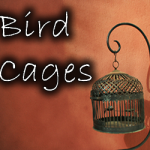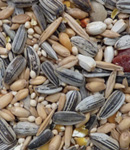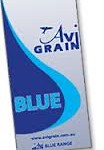Hand Raised Cockatiel’s for sale Sydney.
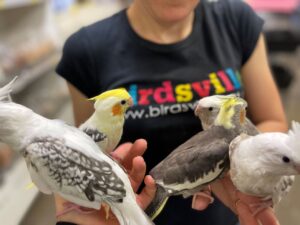
Caring for cockatiels
Hand reared Cockatiels are the world’s most popular and affordable pet hand raised bird. Cockatiels are the smallest member of the cockatoo family. They are small enough to comfortably fit in an apartment but hardy enough to become a member of any big human family. Due to their wonderful, amazing and outgoing personalities they crave human company. Your pet cockatiel will follow you around like a loyal dog in a happy environment. Cockatiels love head scratches and are great talkers. They copy nursery rhymes, pick up every day sounds like ringing telephones or TV commercials.
Bringing your baby cockatiel home care sheet, click on this link Cockatiel caresheet
Availability at Birdsville
Hand Raised Cockatiel are available most of the year round except winter. If you are interested in owning a cockatiel, give Birdsville a call or visit to chat and see them firsthand.
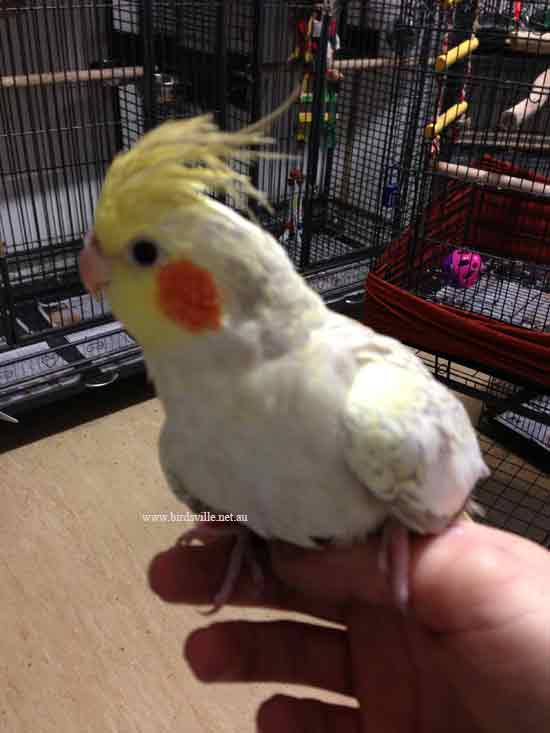
Check out our gacebook or insta to see what baby hand raised cockatiels we have in stock
https://www.facebook.com/BirdsvilleRosebery/
Distribution and Habitat of cockatiels
Cockatiels are native to Australia, they travel in large flocks following food, settling in scrubby low desert vegetation, close to water, such as creeks and rivers.
Diet For Hand Raised Cockatiels
Most issues with cockatiels come from a poor diet. Cockatiels have different diet requirements than most colorful parrots they do not require a high fructose diet. Birdsville have blended a super healthy cockatiel blend in store that has herbs, legumes, vegetables, beetroot and grains that will keep your cockatiels in top condition and health.
Diet for a baby cockatiel click on our like cockatiel care sheet
As a bird keeper i have found hand reared cockatiels very easy to care for compared to some parrot species! Cockatiels are granivores, as such the healthiest cockatiels have a mix of seed and pellets, the seed has lots of protein and omega 3 and the pellets has many added vitamins. Cockatiels will almost always eat seed before they will eat pellets. So i recommend having one bowl with pellets and the other with seed. the seed bowl will be eaten first then the second bowel of pellets will be eaten afterwards. it’s a very easy and cost-effective way to feed them. Never feed baby cockatiels this way, they need to have an all you can eat buffet with lots of seed until they are at least 14 weeks old.
Pellets– As a low fructose species we recommend vetafarm maintenance pellets and Murphys pellets for cockatiels. I have found Cockatiels that are used to seed only diet to simply place both seed and pellets in different containers in your cockatiels cage. Over time increase the number of pellets over seed. Many people come in and say their pet cockatiel won’t eat pellets but that’s simply because they are filling up on seed which is completely. remember good quality seed still has great proteins and omega 3 and your pellets have many added vitamins. Pellets are an important part of the diet but shouldn’t me more than 30% of the full diet. Another option is to not fill up the seed until they have eaten the pellets.
Seed– The biggest issue I see with pet cockatiel’s is low quality or wrong seed mixes. This over time will show as their feather’s shine less and eventually the birds health will deteriorate. poor nutrition will create the common condition of fatty liver disease. Poor diet will eventuate in many other health problems from poor general condition to fatty cysts. Even worse feeding a baby cockatiel on a low-grade or wrong seed which has recently been weaned can kill the bird as they have to work too hard to find enough to eat. Please be wary of some supermarket seed mixes as some of them are of very low quality despite the fancy packaging promising vitamins etc. yet rea full of grit and cheap filler grains. Good quality seed is usually found in all Avian stores and small animal specialist stores. Unsure of your seed mix? next time you visit a bird specialist or breeder, ask them about the mix they use. Remember breeder’s must have healthy birds for a successful breeding program so they will need to feed their animals top shelf food. Grains and good quality seed should be the majority of a cockatiels diet 60% at least. I recommend our cockatiel owners to take their diet up a notch and supply the below point which is our birdsville tiel and lovebird blend. Many people mix their seed with the birdsville blend to create a super healthy well-rounded diet.
Birdsville blend Tiel and lovebird – This is the creme de la creme of great foods
Greens– seeding grasses, carrot tops, broccoli leaves, Bok choy, kale, peas, endive, spinach, parsley, spinach, broccoli, green peas, spinach and fresh seeding grasses.
Vegetables– Zucchini, squash, corn, sweet potato, carrot, pumpkin
Fruits– I know this may Suprise many people but cockatiels will not always take fruit, this is because they are not designed to have a high fructose diet, but they will consume some so here is a list of what you can offer. Apples, rock melon, banana, pear, peaches, kiwi to name a fruit to not be alarmed if your cockatiel does not eat fruit as they do not naturally eat much if any fruit in the Australian bush as they mainly feed on seed and greens as long as they receive some greens and vegetables i know your bird will be happier for it.
Vitamin supplement– To add many essential vitamins that a captive environment does not provide. There is many great bird vitamin supplements available in Australia. Vitamins are not necessary if your cockatiel is fed pellets as they already contain them. Links to popular vitamins are linked – ornithon – vetafarm breeding aid plus – multi vitamins, passwell multi vite your Local Bird specialist bricks and mortar store should stock all of these products.
The good oil – Liquid Omega 3 and 6 supplement for not only improving the health of cockatiels in general and their eggs it can help with fatty liver disease. Omega 3 and 6 can be deficient in many grains and this can help repair the liver, egg production and immunity. The good oil also contains fat – soluble vitamins including A, D3 and E. Easy to use mix 15ml of the good oil per kg of seed. Let mix stand for at least 4 hours at room temperature before feeding to ensure the oil leaks into the kernel of the seed.
Soaked seed– This is fabulous for Cockatiels; cockatoo seed is perfect for use in making your own soaked seed mix. Place seed in a stainless-steel dish and add aviclens to the mix to stop bacterial and fungal build up. The next day rinse the seed until the water is clear and place the seed in a plastic bag with some holes poked in the bottom with a fork. Leave somewhere warm for 24 hours in summer or 48 hours in winter to sprout. Place the sprouted seed in a container and rinse with water and aviclens again to kill any bacterial and fungal spores that may have developed. Aviclens or multiclens is a very important step as the bacteria developed can actually make birds very sick.
Millet sprays – Cockatiel’s love millet sprays, this is a fresh seed still on the stem. This is probably our most popular product we stock in store. Both French white and panicum are the most popular. French White Millet is the best option, followed by panicum. During drought or mice plagues we can substitute with other varieties.
Calcium and Iodine Provide in the form of a cuttle bone and a tonic bell with some shell grit will make ensure good feathers and strong bones. Also make sure you add vitamins to their water once a week. Calcium is unable to be absorbed without vitamin D. Remember birds have hollow bones unlike mammals so they cannot store minerals and calcium as well and need a lot for feathers they grow. This can be added to your bird’s diet in liquid form.
Calcium and iodine perch – Shell grit – Calcium and Iodine bells
Vitamin D – Without vitamin D your bird is unable to absorb calcium the exact same as humans. Birds naturally get vitamin D from the sun, interestingly when we do bird nail clipping for customers we can actually tell if your bird has a calcium problem. Birds lacking in calcium get a whole list of issues and a shortened lifespan. Many of these customers with birds that have a calcium problem say oh, but my bird gets lots of sun. My bird lives next to the window and the sun shines on them every day. Unfortunately, glass filters the sun, and you can’t get vitamin D through glass. Birds need around 10 hours a week of unfiltered sunlight to get the right amount of vitamin D.
listed Below are links to Avian vitamin D supplements we stock in store is – Vetafarm soluvite D – Vetafarm D Nutrical and Vetafarm Calcivet Liquid. If you are unsure which to use, visit your local bird expert store and they should be able to help you.
Cages for Cockatiels
Cockatiels are great apartment birds as they do not make excessive noise or mess as birds go, but they do need the appropriate cage for their size. They need to have enough room to spread their wings and move while also fitting in the toys and swings they need.
Cages for small to medium birds
Toys and Environmental enrichment
Like all parrots and cockatoos, they love to play. Ladders, swings, toys and bells are important toys for cockatiels. Things that they can chew on and interact with are important for their mental wellbeing. Your bird is happier with more stimulation, and they will become a better pet. They should have at least 4 toys of different textures, bells, luffa, and possibly wood. A ladder and a swing, some also enjoy a place to hide in, depending on the bird. It always saddens me when a customer tells me that their cockatiel doesn’t have toys because he chews them. This is crazy as that is the whole purpose.
Links to our bird toys below
Bird Foot Toys – Leather bird Toys – Luffa Bird Toys – Wooden Bird Toys – Natural Bird Toys – Foraging Bird Toys
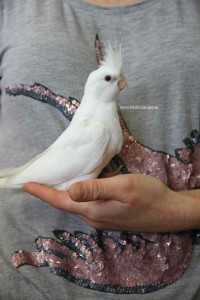
Worming– have you wormed your Cockatiel?
Adult cockatiels should be wormed every 3 months. Baby recently weaned Cockatiel wormed 10 days after being taken home.
every 6 months.
Many wormers available at Birdsville. If you’re unsure of what to use, ask our team members in store for assistants. As a major distributor of avian products in Australia, our prices are one of the cheapest.
aristopet worming syrup with praziquantel – vetafarm wormout gel – avtrol plus bird wormer.
Worming your bird is actually very easy it will simply go in the water supply for amounts simply check the label on the bottle, or on some bottles peel back the label.
Why are worms bad for your bird and you?
Worms cause a range of diseases, the severity of which depends on the species of worm they are infected with. Parasitic worms have an indirect lifecycle with many insects such as fly’s, beetles, other insects and feces acting as intermediate hosts.
Worms can weaken your bird’s immune system which inadvertently can kill your bird from a virus that a bird with a strong immune system can fight off.
if your bird is not wormed regularly and after some time you do worm your bird, the dead worms can cause intestinal or respiratory blockages, in sick adult birds it may be a good idea to worm them with a half dose first. This is at Birdsville we recommend worming every 3 months at least.
Worms they can get include but not limited to Tapeworm Worm (Choanotaena spp, Raillietina spp), Thread Worm (Capillaries spp.) Roundworm (Ascaridia spp.), Ceacal Worm (Heterakis gallinarum), Hook Worm Acuaria spp.) in both Aviary and caged Cockatiels.
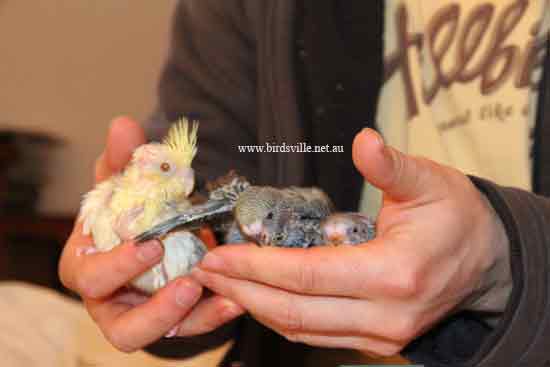
Lice and mites are the most common parasites of cage birds and their environment but are easily controlled with a Mite and Lice spray, available at Birdsville. When using, spray bird, entire cage, perches, nesting box and toys, remember to remove all water and feed and avoid spraying in birds’ eyes. Your bird Lice and mite bottle will explain how to use, remember avoiding the mouth and eyes. Your cockatiel should be sprayed every 3 months.
Why is lice and mites bad?
It can kill your bird in severe cases, as it adds stress to your bird through sucking its blood and making your bird anemic. Lice and mites can cause plucking and skin conditions due to itchiness. These things can weaken the immune system and make your bird susceptible to disease that your bird would normally fight off.
list of lice and mice medication below for cockatiels, if you’re unsure of which one to buy, visit your local bird store, vetafarm avimec – inca pestene powder – aristopet scaley face and leg treatment – avitrol bird mite and lice spray – mite and lice spray
Liquid Majic for keeping newly arrived or stressed cockatiels healthy. Aside from certain illnesses that these mild antibiotics are good for i recommend anyone who gets a new bird to treat them with this anytime they move as stress can often give them the runs. Sulphadim or sulfa 3 calms them down and stops them from getting de hydrated.
Hygiene
It’s important to keep your cage clean as the environment and condition your birds live in plays a big role in your bird’s health.
Using bird friendly cage cleaner comes ready to use with no need to dilute it. Simply spray onto your pet’s cage and wipe with a cloth to remove stains, soiling and odor.
Aristopet or vetafarm cage cleaner designed to keep your cage clean safe, nontoxic and easy to use.
Removes dirt and debris easy as well.
Gently deodorizes without strong fragrance that could upset your bird.
Another great way to keep your cage tidy is using shell grit as a substrate, this is what we use for our birds, and it makes cleaning your cage very easy. Visit your local bird store and they will have this is a regular supply.
Training Cockatiels
The first couple of days you should let your bird settle in especially if it is only a baby. The first simple training teaching to step up. This will not take long as your bird will form a bond with you quite quickly as long as your calm and spend time with your bird. More training information can be found on the Training page.
Breeding cockatiel’s
Most people that keep cockatiels get alot of joy in breeding them. Cockatiel nest boxes (available at birdsville) must be in the 3rd of the aviary as they do not like to nest close to the ground. Birdsville has cages available equipped with a small opening on the side of the cage to attach a nest box. It is essential to place parrot nesting material inside the nest box. If this is not done the babies will not have the support they need and will probably be deformed. If breeding is done inside an aviary then the box can be placed inside the aviary itself.
